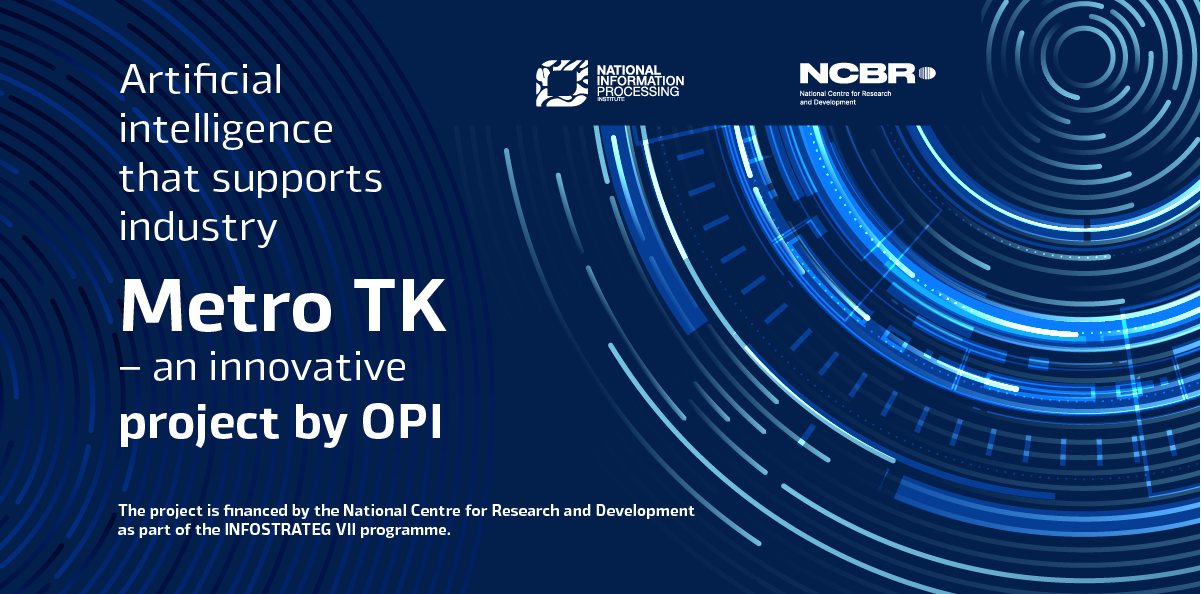The project seeks to enhance computed tomography in industrial metrology through artificial intelligence. Experts at OPI will receive support from specialists at the Warsaw University of Technology and ITA. The Metro TK project is co-funded by the National Center for Research and Development (NCBR) under the INFOSTRATEG VII programme.
AI: powering the future of industry
OPI has offered cutting-edge, AI-powered digital solutions to a variety of sectors, including administration, medicine, and the footwear industry. This time, AI-driven solutions will be implemented in the precision, automotive, aircraft, and energy industries.
‘An increasing number of Polish firms are showing readiness to embrace digital tools that rely on artificial intelligence. Similar trends are observed worldwide. Gaining a competitive edge necessitates investments in innovative solutions. This environment fosters collaboration between business and science, spurring innovation in the Polish economy,’ says Dr Jarosław Protasiewicz, Head of the National Information Processing Institute. ‘By leveraging the INFOSTRATEG VII funds we are launching a new project that will benefit multiple key industry sectors. Our AI-based solutions will enable the application of advanced computed tomography (CT) analysis in the field of industrial metrology, contributing to the improvement of industrial control standards,’ adds Dr Protasiewicz.
The project will develop an advanced analysis system to enable automatic and accurate internal volume measurements of objects, eliminating the need for operators to disassemble or manually measure them, with CT imaging improving the efficiency and accuracy of the process. The solution will be accessible as a service via a dedicated app. This will enable the analysis of the shape and volume of closed, internal spaces, particularly when standard measurement methods are impractical due to the object’s distinct properties. The app will aim to improve the accuracy and efficiency of internal volume measurements for ionisation chambers and aerosol cans.
Computed tomography beyond medicine
Although computed tomography is commonly associated with medicine alone, CT has widespread application in manufacturing. Computed tomography has revolutionised industrial metrology, significantly advancing non-destructive coordinate-measuring techniques and becoming crucial in sectors such as precision engineering, automotive, aerospace, and energy. CT measurements primarily deliver spatial results that consider the interior of the measured element, accounting for material discontinuities— a feat unattainable by other measurement methods. Unfortunately, this type of measurement faces various challenges arising from the measurement methodology, the analysis of volumetric data, and the lack of standards for internal volumes. For that reason, obtaining accurate volumetric data of complex structures made from diverse materials can be a daunting task.
‘Our project offers an innovative approach to the analysis of CT data, with the focus on automating the volume determination process and improving the accuracy of edge and surface detection in reconstructed objects. ‘Despite being highly advanced, modern methods often depend on experienced operators, potentially resulting in subjective errors and measurement inconsistencies,’ says Dr Piotr Sobecki, Head of the Laboratory of Applied Artificial Intelligence at OPI, who is responsible for the project. ‘The solution proposed by experts at OPI and our partners minimizes human involvement by using advanced AI algorithms and analysis techniques that automatically and accurately delineate the boundaries between a specific material and air, as well as between various materials. This enables a precise and consistent determination of the internal volume and dimensions of the objects examined, eliminating the need for manual intervention,’ adds Dr Sobecki.
The Metro TK: a metrological volumetric platform in computed tomography project is implemented by a consortium led by the National Information Processing Institute, in partnership with the Warsaw University of Technology and ITA. The project is co-funded under the INFOSTRATEG VII call announced by the National Centre for Research and Development. The project is scheduled for completion by 31 August 2027.
